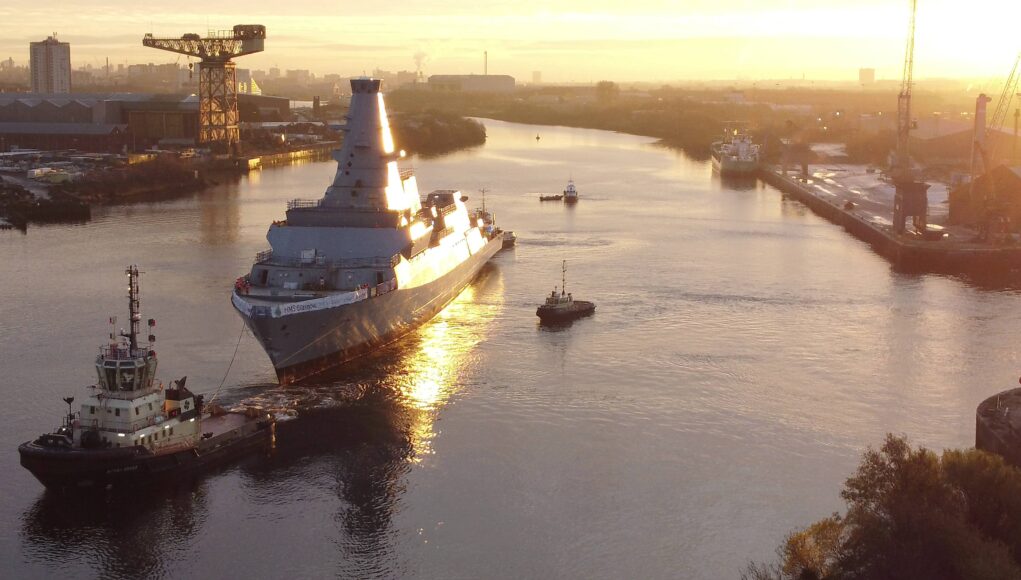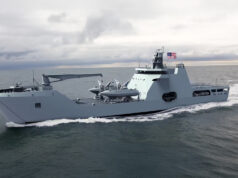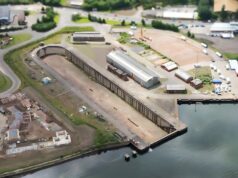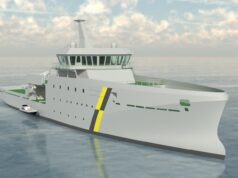The closing exchanges of the Scottish Parliament debate on Norway’s £10 billion Type 26 order turned to questions of supply chain investment, patient finance, and procurement law.
Labour MSP Paul Sweeney pressed the Scottish Government to adopt new measures, but Business Minister Richard Lochhead limited his response to highlighting existing support and ongoing discussions.
Sweeney underlined the importance of the supply chain to shipbuilding. “Around 80 per cent of the value of those ships is bought into the shipyard through the supply chain, so maximising that content is key,” he said. He asked what Scottish Enterprise, the National Investment Bank and other agencies could do to deliver “patient finance in place to support investment and get more Scottish content into those ships.”
Lochhead replied that ministers were engaged in discussions with business and the UK Government to increase visibility of future contracts. “A lot of discussion is going on at the moment to make sure that we can capture as much of those contracts for the Scottish supply chain as possible,” he said.
He cited existing interventions: the public ownership of Ferguson Marine, a pledge of up to £14.2 million in investment at the yard, £2 million for engineering skills in Glasgow, and £9 million to BAE Systems for a training academy. “A huge amount of activity is under way to address the skills pipeline so that we can take advantage of all the potential that is under discussion in the debate,” he told MSPs.
Sweeney pressed further, saying: “To win commercial work, they need social value weighting and patient finance. The Scottish National Investment Bank does not really offer any shipbuilding finance products that are competitive with other countries. Can we address that fundamental issue?”
Lochhead did not commit to specific reforms, instead noting these were “parts of on-going discussions.”
The exchange also turned to procurement law. Sweeney urged the government to consider “making further use of section 45 of the Subsidy Control Act 2022” in light of Russian activity against undersea cables near the Northern Isles, suggesting this could justify a direct award or a UK-only competition for ferry services.
Lochhead responded: “We are sympathetic to doing what we can, and we are looking at procurement issues closely. However, we have to do that within the legal constraints of public subsidy control legislation.”
The minister closed by stressing the broader consensus: “We are all in the same place, which is that we all want to support Scottish shipbuilding going forward. We are on the cusp of an exciting new chapter for shipbuilding in Scotland.”
The debate highlighted cross-party recognition of the opportunity presented by Norway’s order, but also exposed the lack of concrete Scottish Government commitments on social value weighting, patient finance, or the use of section 45 powers, issues Sweeney argued are central to securing the long-term future of the industry.














Ha, not what I thought It was !!!!
Lockheed??
Lockheed??
Pardon? “Social value weighting, patient finance, or the use of Section 45 powers…”? Please explain in brief for the benefit of uninformed colonials. Thanks.
I can do a couple of those.
Social value can be applied when there’s competition for a government contract, meaning it doesn’t need to be decided on price alone. The government can take elements of social value into account, such as building in the UK, creating jobs, upskilling workers and creating infrastructure to help future orders. The proportion of the project value that can be taken into account is the social value weighting.
Section 45 states that certain competition rules can be overriden for National Security reasons.